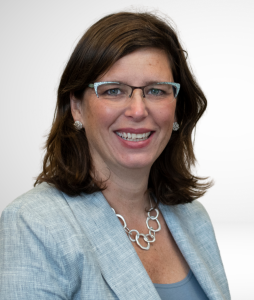September marks Gynecologic Cancer Awareness Month, a time dedicated to raising awareness about cancers that affect the female reproductive system—including uterine, ovarian, cervical, vaginal, and vulvar cancers. Every five minutes, someone is diagnosed with gynecologic cancer, yet many of these cancers have no early screening tests and symptoms that are often overlooked.
At Riverwood, our women’s health team is dedicated to walking beside you—listening, caring, and making sure you have the knowledge and support you need to protect your health.
Know the Signs
Early detection can save lives, but it begins with awareness. Watch for symptoms such as:
- Abnormal vaginal bleeding or discharge, especially after menopause or between periods
- Pelvic or abdominal pain or pressure
- Bloating or feeling full quickly
- Frequent or urgent need to urinate
- Unexplained weight loss or fatigue
- Changes in vulvar skin, such as itching, burning, or sores
If you experience any of these symptoms for two weeks or more, it’s important to talk to your healthcare provider. While these signs can be caused by conditions other than cancer, only a medical evaluation can provide answers—and peace of mind.
How We Care for You
Dr. Alisha Lindberg, OB/GYN at Riverwood, emphasizes the importance of awareness and proactive care:
“Gynecologic cancers often present with subtle symptoms, which can be easy to dismiss. That’s why education and regular check-ins are so important. I encourage women to listen to their bodies and seek care early.”
Dr. Lindberg and Dr. Tessmer-Tuck see patients weekly at Riverwood’s specialty clinic in Aitkin. They are passionate about empowering women through education, listening with compassion, and providing care that is truly personal.
Take the Next Step
Your health is worth prioritizing. Riverwood makes it easy to take charge:
- Call us at 218-927-5566 to schedule an appointment.
- Book online at riverwoodhealthcare.org or through MyChart.
This September, take a moment for yourself. Learn the signs. Share this knowledge with others. And most importantly, schedule your visit. Because when it comes to gynecologic cancer, early action makes all the difference.



